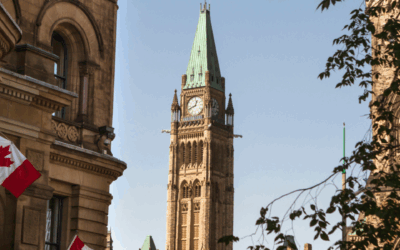OTTAWA— In a new independent assessment of the federal government’s 2023 Emissions Reduction Plan progress report, the Canadian Climate Institute finds the country has made big strides cutting emissions, but that more and faster progress is needed to put the country on track to its 2030 target.
Current policies are working—Canada is on track to achieve between 85 and 90 per cent of its 2030 emissions target. The Institute’s assessment includes modelling that shows emissions would be 7 per cent higher today, and 41 per cent higher by 2030, without climate actions taken to date by all levels of government since 2015.
Canada is also making substantial progress in implementing policy. Since the release of the national climate plan in March 2022, several major policies have either been put into law or moved closer to implementation, including the Clean Fuel Regulations, updated carbon pricing, draft Clean Electricity Regulations, and the proposed oil and gas emissions cap.
Despite these signs of progress, Canada is projected to fall short of its 2030 target without further action. Even after the implementation and tightening of current and proposed policies, emissions are expected to be 34 to 36 per cent below 2005 levels by 2030, short of the national target of at least 40 per cent by that time. The analysis also shows emissions declining 19 per cent below 2005 levels by 2026, within striking distance of the government’s interim objective of 20 per cent for that year.
To close the gap, the assessment recommends that all orders of government, including provinces and territories, quickly implement remaining policies, strengthen existing ones, and introduce new actions.
Top priorities previously identified by the Institute that require quick action include strengthening the large-emitter credit-trading systems, implementing the proposed Clean Electricity Regulations with some improvements, finalizing a strong oil and gas emissions cap, and accelerating nature-based climate solutions. In addition, quick action on the federal government’s forthcoming Green Buildings Strategy can help address rising emissions from the building sector. The independent assessment identifies additional options for strengthening existing policies and adding new ones to close the gap.
The Climate Institute also found that the federal government’s progress report provides enhanced transparency and accountability on emissions projections and policy implementation in Canada, though there is room for continuous improvement. Future reports should include more detailed updates on policy progress, including next steps on implementation and an assessment of whether a policy is on track. The government should also track a more comprehensive set of indicators of progress, such as technology deployment, infrastructure build out, and investment—whether within the formal progress report, or alongside it.
QUOTES
“Efforts to reduce emissions have made some big strides, and the whole country now needs to keep building momentum by implementing stringent policies as planned. We can’t afford any backsliding or delay. The best way to do that is for the provinces and territories to cooperate with each other, and with the federal government, to hit the target.”
—Dave Sawyer, Principal Economist, Canadian Climate Institute
“Climate action is not a pass or fail test—every megatonne of emissions reduction matters. It’s encouraging to see effective policy starting to make big cuts to our emissions now and into the future. However, 2030 will be here before we know it, and provincial, territorial, and federal governments will need to finalize developing policies, strengthen existing policies, and implement new measures to hit our mark.”
—Anna Kanduth, Director, 440 Megatonnes
Resources
- 2023 Independent Assessment | Independent Assessment of Canada’s 2023 Emissions Reduction Plan
- 440 Megatonnes Insight | Is Canada on track to its 2030 target?
- 2022 Independent Assessment | Independent Assessment 2030 Emissions Reduction Plan
- 440 Megatonnes Insight | Emissions from oil and gas, buildings undercut Canada’s climate progress
CONTACT Catharine Tunnacliffe
Communications Director
Canadian Climate Institute
(226) 212-9883
ctunnacliffe@climateinstitute.ca





